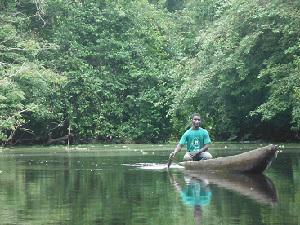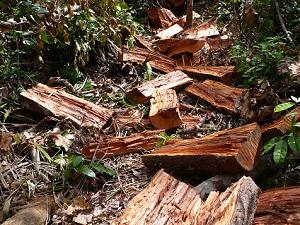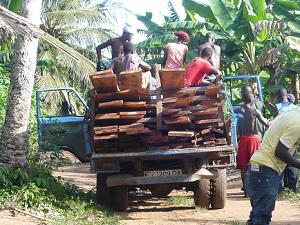Andrea Dempsey
This project aims to implement the Spatial Monitoring and Reporting Tool (SMART) to help monitor and protect the primates in a highly bio-diverse community-owned wildlife corridor in western Ghana (Kwabre Rainforest).

The Kwabre Rainforest, a 2,500 hectare community owned virgin forest in western Ghana, is one of the last refuges for three endangered primates. The fate of the entire world population of roloway guenons (Cercopithecus diana roloway), one of the World’s 25 Most Endangered Primates is now in the hands of the local people who own the only two rainforests where this species is still in existence, the Kwabre Rainforest in Ghana and the Tanoé Forest in Côte d’Ivoire.

These forests are also home to the Endangered white-naped mangabey, Cercocebus atys lunulatus and there is even evidence to indicate there may still be existing populations of Miss Waldron’s red colobus, Procolobus badius waldroni (Critically Endangered) a species previously thought to be extinct. The rural communities surrounding these two forests have an avid desire to preserve the rainforest and its inhabitants however illegal activity (logging and bushmeat hunting) perpetrated by people outside the community is rampant and is destroying this pristine habitat.

The communities have formed their own rainforest patrol teams in an attempt to address the illegal activity but they lack the experience and capacity to effect any lasting change. This project aims to establish baseline data on the three species of endangered primates in the Kwabre Rainforest and train and empower the local people to help inform conservation action, whilst taking effective action to halt illegal activities in their rainforest.
This will be accomplished using SMART (Spatial Monitoring and Reporting Tool), a free tool for measuring, evaluating and improving the effectiveness of government or community-based wildlife law enforcement patrols developed by a consortium of conservation organizations. SMART helps protected area and wildlife managers better plan, evaluate and implement their activities and promote good conservation governance.